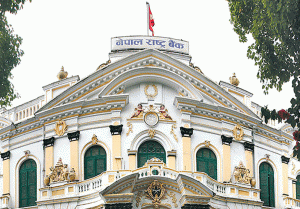
Op-ed pages of broadsheet dailies published in Kathmandu on Thursday have given importance to two issues: Prime Minister Deuba’s visit to New Delhi and the Tribhuvan University’s controversial decision to grant affiliation to Kathmandu National Medical college.
Can Nepal mediate between India and China?

Prime Minister Sher Bahadur Deuba is to meet his Indian counterpart Narendra Modi in New Delhi on Thursday. During the one-on-one meeting, India is expected to touch upon the issue of the standoff between Beijing and New Delhi. In this context, Nepali Congress central committee memmber Ramchandra Pokharel, in his piece for Kantipur, says Nepal could raise its diplomatic standing in Asia if Kathmandu can host talks between India and China. He says that Nepal is likely to be affected if the Doklam standoff continues and that is why it should urge both sides to defuse tensions by sitting for talks.
Doklam and Nepal

Biswas Baral in his lead article for Republica says that the tensions between India and China should be viewed as part of the ‘big game’ with India and US on the one hand and China on the other. In the context of Nepal, after the border blockade and recent floods in the Terai, which have been partly attributed to India-built dams and roads, only a handful of intellectuals are ready to take up India’s cause.
Baral says the strife between India and China also has implications on the domestic politics of the two countries as both Modi and XI prepare for crucial political shakeups in the months to come. Citing a recent discussion among intellectuals, Baral raises an important question: If India and China go to war, and India requests Nepal to allow it to use Nepali territory to transfer its logistics citing the 1950 treaty, what will Kathmandu do?
The Madheshi perspective on the visit

Chandra Kishore, in his lead piece for Kantipur, says that there is a tendency among Nepali leaders to either idolise or demonise India and China when it comes to domestic politics. He says that both India and China want Nepal on their side and are pressing Kathmandu to follow their lead, but Nepal has maintained a neutral stand on the issue. He says that Nepal cannot afford to take sides in the conflict, and it needs to convey this to India.
TU’s controversial decision

As Dr Govinda KC, an orthopaedic surgeon advocating for reforms in medical education in Nepal, recently broke his hunger strike, reports in the media revealed that the Tribhuvan University made a controversial decision to grant the Kathmandu-based National Medical College affiliation by defying a court order not to do so. Hari Adhikari, in his lead article for Nagarik, says Vice-chancellor Tirtha Khaniya has challenged Chancellor and Prime Minister Sher Bahadur Deuba by granting the affiliation. He says that whether Deuba backs Khaniya or takes action against him will be something worth following after the Prime Minister returns from New Delhi.
Similarly, Dr Ghanashyam Bhatta, in his lead article for Annapurna Post, says lawmakers should be ready to stay quiet on bills that can raise the issue of conflict of interest. He says that Nepali Congress has the golden opportunity to pass the new Medical Education bill and undo the wrong they have done in the past.
Interview with Economist Poudel

In his interview for Republica, economist Biswo Poudel says since Nepal is between India and China, Nepalis know more about India and China than Indian and China may know about each other. He says that for Nepal to prosper, China and India should remain on friendly terms. Nepal is not in a position to manipulate these two countries. He says that rather than trying to become a buffer state, Nepal should try to become a place where both countries come and invest.
























